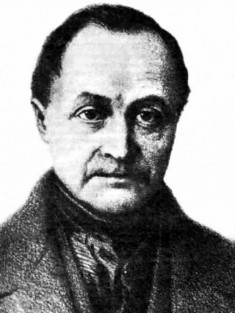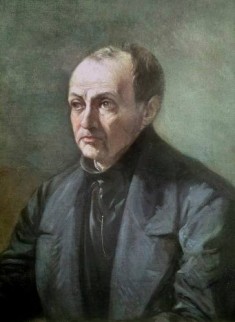| Auguste Comte | |
|---|---|
 |
|
| Philosopher | |
| Specialty | Sociology, positivism |
| Born | Jan. 19, 1798 Montpellier, France |
| Died | Sep. 5, 1857 (at age 59) Paris, France |
| Nationality | French |
Auguste Comte was a famous French philosopher who is best known as the founder of discipline of sociology. In some cases, he is regarded as the first philosopher of the science, too. He even developed the famous Positive Philosophy in a great attempt to remedy the social malaise of French Revolution.
Early Life
Auguste was born on January 19, 1798 in Paris, France. During his time of birth, modern science and technology was giving birth to the Industrial Revolution. Auguste’s father was a government tax official while his mother was a housewife. They were both devout Roman Catholics. While still attending University of Montpellier, he abandoned these attitudes in exchange for republicanism. This move was inspired by the French Revolution that would later influence his works in later life.
In 1814, Auguste Comte joined Ecole Polytechnique. Here, he proved to be a very smart mathematician and scientist. After a short while, he left school before graduating and then decided to settle in Paris. He made this decision even without any means to support himself. He started his life in Paris by teaching mathematics and journalism. During this time, he also studied history, economics, and philosophy.
When he turned 19, Comte met a social theorist named Henri Simon. Comte became his secretary and also a collaborator. In 1824, this partnership was terminated over a dispute involving authorship of a particular writing. However, Simon’s influence remained throughout Comte’s life.
Philosophical Works and Ideas
Auguste Comte developed a social doctrine that was based on scientific principles. In 1826, he started presenting lectures to a group of distinguished French intellectuals. However, after about one-third of his lecture series, he suffered a nervous breakdown. Apart from being in hospital for a long time, he still managed to produce one of his major works. This was a six-volume book called The Course in Positive Philosophy. In this work, he argued that, just like the physical world, society operated under its own laws.
 His efforts also furthered the study of society and sociology development. He supported himself with a job at Ecole Polytechnique, but he unfortunately clashed with administrators and was fired in 1842. In the same year, he divorced his wife of 17 years. After losing his job, he started depending on his friends, family, and benefactors to support him.
His efforts also furthered the study of society and sociology development. He supported himself with a job at Ecole Polytechnique, but he unfortunately clashed with administrators and was fired in 1842. In the same year, he divorced his wife of 17 years. After losing his job, he started depending on his friends, family, and benefactors to support him.
In 1844, Comte became involved with Clotilde Vaux who was a French aristocrat and writer. Since she was not officially divorced from her husband, the two had platonic relationship and most people thought they were deeply in love. Vaux died in 1846 and after her death, Auguste Comte wrote a book called System of Positive Polity. He proposed that a religious order that was based on reason and humanity; he emphasized the idea of morality as the cornerstone of human political organization.
Religion of Humanity
In his later years, Comte came up with religion of humanity. In 1849, he proposed a great calendar reform that was called the ‘positivist calendar.’ However, the system was not successful since it was met with the publication of Darwin’s On the Origin of Species in 1859. Although Comte’s English followers, such as George Eliot, had rejected this system, they loved this idea of a religion of humanity. His theories influenced much of the development of secular humanist and religious humanist organizations during the 19th century.
Comte’s Positivism
Auguste Comte first described his idea of positivism in a number of texts entitled Course in the Positive Philosophy. These texts were published between the years 1830 and 1842. After this, the texts were later followed by his 1848 work called General View of the Positivism that was later published in the English language in 1865. The first three volumes dealt with physical sciences that already existed (astronomy, chemistry, mathematics, biology and physics). The other two volumes dealt with the coming of social science.
Comte’s Three Stages
Comte’s law of the three stages states that each and every branch of human knowledge basically passes through three theoretical conditions. The conditions are fictitious, the abstract (or Metaphysical), and the positive of scientific.
Final Years and Death
Auguste Comte work was widely promulgated by many of Europe’s intellectuals. His work also influenced the thinking of George Eliot, Karl Marx, and John Mill.
On September 5, 1857, Comte died of stomach cancer while in Paris. He devoted himself to the betterment of the society.